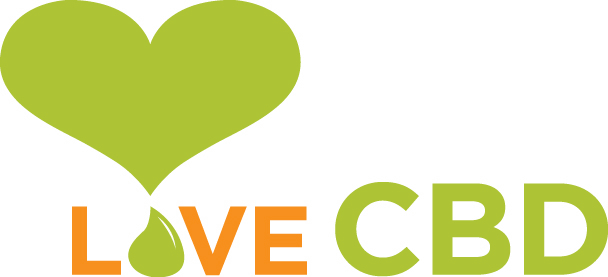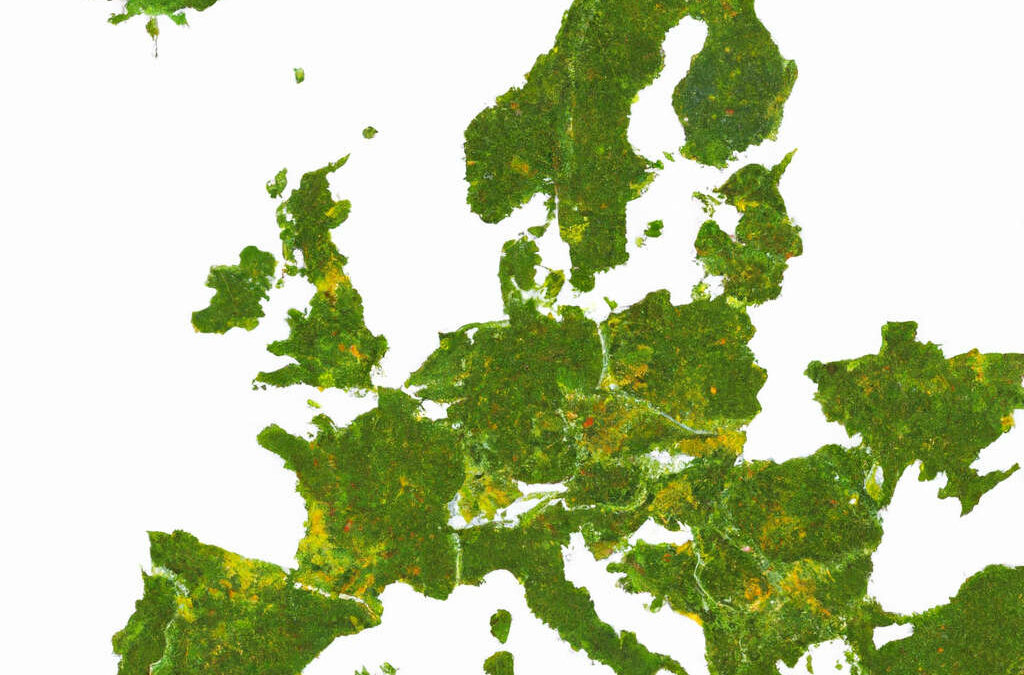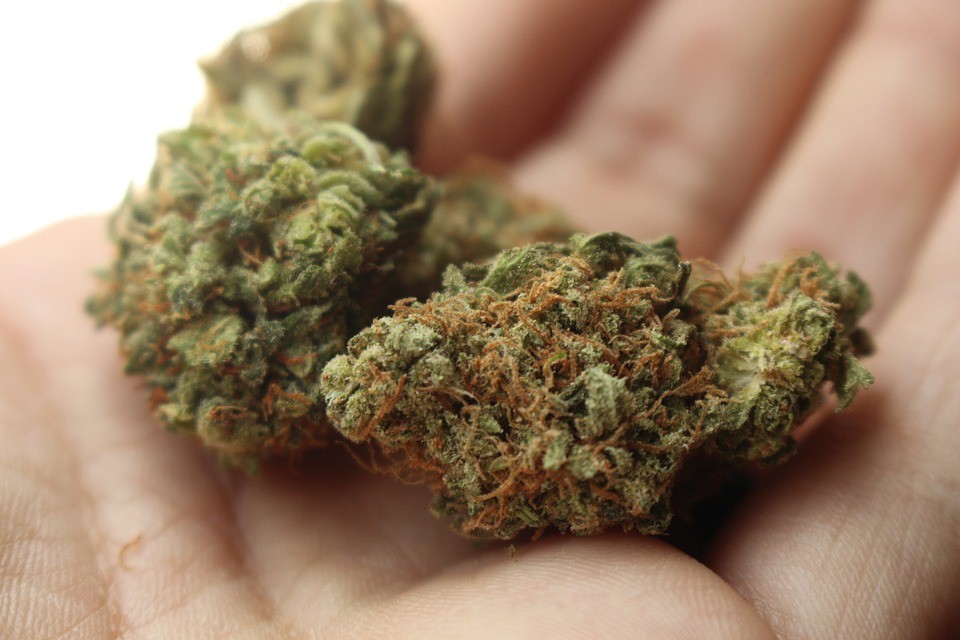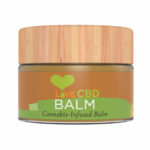A report by the European Monitoring Centre for Drugs and Drug Addiction, stated that cannabis accounted for 57% of an overall estimate of 1.6 million substance offences in Europe in 2014. Cannabis is a widely used drug across Europe, not just in countries where it is decriminalized, but also those where the recreational strains are illegal. In fact, it is the most widely used illicit drug in Europe.
International Law permits the control of cannabis for medical and industrial use, the exception being in EU countries that grow cannabis plants with <0.20% THC for use in the hemp industry. This being said, cannabis seeds can be subject to controls in countries such as Portugal and Cyprus; the offence is seen as facilitating drug production. EU countries have an obligation as part of the United Nations Drug Treaties to control cannabis that has levels of THC higher than 0.20%. In a 2015 study by the EMCDDA, it is estimated that the average potency of cannabis in EU member states is between 4-28%. THC is only present in female flowers and the plant hairs that grow on them, meaning there is no THC present in cannabis roots and seeds; stems contain ~0.3% and lower leaves contain ~1% THC.
Industrial Cannabis Laws: Hemp Laws
The European Union permits the cultivation and sale of cannabis plants for hemp products based on the THC content being less than 0.20%. EU Regulation 1307/2013 maintains that hemp farmers are restricted to using seeds that yield crops with a very low, if any THC content. To be given financial grants as part of EU Farming Standards, industrial hemp is required to undergo testing to determine the possible psychoactive properties of the plant, i.e. a higher level of THC than is deemed acceptable by EU standards.
Imported varieties also fall under the EU Regulation 1308/2013 to ensure that all imported hemp is not above the 0.20% THC threshold. EU Regulation is arbitrary in all member states, but this is only the case with growing cannabis for hemp products, not for sale as a recreational drug. In some instances, countries in the EU have had to change the law permitting the sale and production of hemp to comply with EU Regulations.
Cannabis Laws Europe
Whilst there can be EU involvement regarding the cultivation and sale of hemp, cannabis harvested for the recreational drug is controlled locally in EU Member States. Therefore, the response to drug offences falls under local government jurisdiction, not the EU. The only case when this is not arbitrary is with drug trafficking, particularly in cases of unregulated strains of cannabis. Possession for personal use was excluded from EU Regulations, Member States are instead obliged to contribute to the efforts of reducing illicit cannabis trafficking, ensuring these offences are punished accordingly.
Each EU member has different laws regarding the sale, distribution and production of cannabis but all are obliged to cooperative in the reduction of drug trafficking under EU and United Nations legislation. Article 4 of the EU Framework (classifying drug law based on the impact to health) lays out a strong, yet implicit discourse; drugs that are considered most harmful to health should be controlled with sanctions and individuals sentenced accordingly. The main issue is that the definition leaves it to the interpretation of the Member States to assess what drugs are considered most harmful to health. As such, this has meant that cannabis laws across Europe are incoherent and differ per country.
Cannabis Laws by Country:
Austria
A study by the EMCDDA found that 14% of young adults (15-34) in Austria had used cannabis in their lifetime. In January 2016, the Austrian Government decriminalized possession of up to 5 grams of cannabis, on the basis that the user attends therapy and cooperates with the health authority. The sale of cannabis is punishable by up to three years in prison, with the sentence increasing if found to be selling more than 200g. Mitigating circumstances can reduce sentencing, mainly if the individual is considered to be addicted.
Belgium
The laws of the 1st April 2003 and the 3rd May, as well as a Royal Decree, created a significant difference between possession of cannabis for personal use and other offences including supply and production. Those aged over the age of 18 are permitted to carry up to 3 grams of cannabis for personal use, as well as grow one plant at home. Supply, dealing and industrial production of cannabis remains illegal.
Bulgaria
An amendment of the 2004 Penal Code meant those caught in possession of drugs deemed for personal use were exonerated. A 2006 amendment reduced sanctions imposed upon those found in possession of cannabis and marked a distinction between high-risk and moderate-risk drugs. It is still an offence to be caught in possession of cannabis, as it is classed a high-risk substance. Possession results in fines between €1023 and €2257. Minor cases are usually settled with less, around €511. Possession of any other high-risk drug can result in up to six years in prison, or up to five years if caught with moderate-risk substances.
Croatia
New Regulations following a parliamentary discussion in October 2015 meant that cannabis could be used for medical purposes. The law followed an amendment on classifying, prescribing and dispensing medicines. Possession of cannabis for personal use without the permission of a doctor is usually classed as minor offence, but still results in a fine ranging between 5000-20000kn (£500-£2000).
Cyprus
Cannabis is completely illegal in Cyprus, including possession, supply and manufacture. The Cypriot Government considers the possession of cannabis for personal use a serious offence; it is punishable by up to 8 years in prison. For first-time offenders aged under 25, the sentence is capped at 1 year. Recent legislation has diluted sentencing to avoid the high costs of imprisonment, including referral to drug treatment facilities. In 2003, limits were introduced for the amount of cannabis an individual could possess on the basis for personal use. These limits included less than three cannabis plants or less than 30g. Anything higher resulted in the normal legal procedure. Trafficking cannabis can lead to a life sentence, as it is classed as a high-risk drug.
Czech Republic
Enforced since 2010, The Criminal Code is a comprehensive set of laws that covers drug-related offences, including drug trafficking and possession. Drug use is not considered an offence in the Czech Republic, allowing possession of small amounts for personal use to be considered a non-criminal offence. Possession of up to 15 grams of cannabis, or the cultivation of five plants is met with a fine of approximately €550. Possession of more than this amount is deemed with intent to supply, and carries a prison sentence of up to one year, depending on an individual’s circumstance.
Denmark
The Consolidated Euphoriant Substances Act of 2008 defined the act of importation and exportation, sale, production and possession of cannabis as a criminal offence. Whilst the use of drugs is unregulated, possession and sale is. The penalty for possession of cannabis for personal use usually involves a fine dependant on the amount in possession of. Possession of dangerous drugs can lead to more severe punishments, including a prison sentence based on the drug and amount.
Estonia
The Act on Narcotic Drugs and Psychotropic Substances and Precursors Thereof deemed the consumption of cannabis without a medical prescription or the production of said drug an illegal offence. Punishment can range from a fine to a 30-day prison sentence, all at the discretion of police. As of September 2002, Estonia has decriminalized the possession of cannabis for personal use (<7.5g), possession of small amounts is still met with a fine, but is not recorded on criminal databases.
Finland
Chapter 50 of the Penal Code lays out the main law on drug use in Finland. The possession of cannabis in small amounts for personal use is considered an offence. It is usually met with a fine, but can lead to up to six months in prison. Possession of large amounts of cannabis based on intent to supply and deal is illegal and is punishable by a prison sentence that ranges from 1-10 years.
France
French Law states that the possession and use of illicit drugs is a criminal offence, including cannabis. Charges can be based on the discretion of the prosecutor, depending on the amount of cannabis is possession of and whether there is intent to supply. Possession for personal use is punishable by a maximum sentence of one year in prison, and fined up to €3,750. This is often reduced in minor cases of possession in small amounts, but is still punishable by a fine up to €1875.
Germany
Under the German Federal Narcotics Act, the use of cannabis is not mentioned as an offence. Unauthorized possession of cannabis remains an illegal offence, punishable by up to five years in prison, but prosecution for amounts of possession differ from state to state- Berlin being the most liberal, allowing the possession of up to 15 grams. The illicit supply, cultivation and sale of cannabis remains an illegal offence, punishable with up to five years in prison, with sentencing increasing to 15 years for aggravating factors, including supplying those under the age of 18 and possessing a large amount deemed fit for drug trafficking.
Greece
Amendments to The Greek Drug Law (1987) distinguished drug law between possession for personal use and for commercial use, with punishment relative to the amount and the individual’s circumstance. The 2013 Law (Law No 4139/2013) meant sanctions on drug users were more lenient, including reduced sentences for those caught in possession of cannabis for personal use; these cases lead to no more than five months in prison. In addition, the offence is not recorded on criminal databases on the basis that the offender does not commit a similar offence in a period of five years. Overall, the sentence is completely relative to an individual’s circumstance, the prosecutor’s decision and the severity of the case.
Hungary
As of the 1st July 2013, the new Criminal Code covers all aspects of drug trafficking, supply and possession. However, the consumption of illicit drugs, including cannabis has since been reintroduced as a criminal offence following the omission of the clause in the Criminal Code (2013). Consumption and possession of cannabis is punishable by a prison sentence of up to two years, depending on the amount. Larger quantities are punishable by a prison sentence ranging from 5-15 years; repeat offenders are subject to higher sentencing. The charge for supply and production can lead to up to 20 years in prison.
Ireland
Following the Misuse of Drugs Act 1984, there marked a distinct difference between the possession and sale of illicit drugs. The possession of cannabis (flowers and resin) for personal use is punishable with a fine on first and second conviction. Following a third conviction, an individual is likely to receive a prison sentence of up to the three years depending on the charge. Overall, the possession, sale, transportation and cultivation is illegal in Ireland.
Italy
Possession of cannabis for personal use is considered a minor offence, usually punishable by sanctions, such as the suspension of a driving license, rather than monetary fines. Following the implementation of Law 79 in May 2014, first-time offenders of possession for personal use are usually given a warning and a formal request to stop use; sanctions will follow for repeat offenders. The penalty for supplying cannabis results in a penalty of 2-6 years’ imprisonment.
Latvia
Approximately 10% of young adults in Latvia (15-34) are users of cannabis. Possession and consumption of illicit drugs, including cannabis is punishable by a warning or fine of up to €280. Possession of larger quantities can lead to up to 15 years’ imprisonment, with sale of any amount resulting in a three-year prison sentence. Trafficking cannabis is an illegal offence and punishable by 3-10 years if the individual is involved in group operations.
Lithuania
The Criminal Code of 2003 set out the main drug laws and sentencing guidelines in Lithuania. Consumption of cannabis is deemed an administrative offence that is usually met with a fine. Possession for personal use or small amounts can be met with a fine or administrative arrest. If in possession of a larger amount a prison sentence of two years is more than possible.
Luxembourg
An amendment to the 2001 National Drug Law decriminalised cannabis use and possession only for personal use. If caught in possession of cannabis, users are only subject to fines, unless they use the substance in the presence of minors, which results in further charges. There is no distinction between low-level and high-level drug trafficking and production and penalties for supply and sale can range from 5-10 years’ imprisonment.
Malta
Cannabis is the most commonly used drug used in Malta, with 4.3% of the population (18-65) said to have used the drug according to a 2013 population study. The use of cannabis can lead to a conviction for possession, however possession of small amounts is usually met with a fine rather than legal prosecution; possession is still an arrestable offence however. Fines can range from €75-€125. The Drug Dependence Act of 2014 meant that those caught in possession of small amounts of drugs for personal use are put on trial in front of the Commissioner of Justice. If an offence is committed within two years of the first incident, an individual is required to attend the Drug Offenders Rehabilitation Board, where a drug dependency assessment will take place.
Netherlands
Cannabis use does not carry an illegal charge in the Netherlands so long as certain factors are adhered to. The Coffeeshop Policy means that those over the age of 18 can legally obtain cannabis so long as the shop follows the AHOJ-G criteria, which entails limited advertising of the product, personal transaction size, cannabis stock and refusal to sell to those under the age of 18. Though cannabis possession in small quantities (threshold of 5g) does not carry a criminal charge, it is still an offence to use and possess the drug in areas deemed unsafe for the public, including schools, public transport and streets. It is up to local authorities, not the Government to enforce this law.
Norway
Possession of cannabis for personal use falls under the laws set out in the Act on Medical Products. Possession, cultivation, supply, import and export is illegal under the Penal Code. Individuals caught possessing an amount deemed for personal use (<15g) are usually subject to fines between 1,500-15,000 Norwegian Kroner, depending on the amount. Selling and cultivating cannabis can result in a prison sentence ranging from 6 months to 21 years.
Poland
The Act on Counteracting Drug Addiction of 29th July 2005 regulated the possession and supply of cannabis in Poland. It is not considered an offence to consume cannabis, but possession could lead to a maximum of three years’ imprisonment. Possession of larger amounts are punishable by increased prison sentences of up to 10 years.
Portugal
In place since 2001, Law 30/2000 decriminalized cannabis use, as well as all other drugs. However, possession of cannabis still carries an administrative charge if the amount possessed is no more than a ten-day supply. Possession of small amounts usually results in confiscation of the substance and a summons, it can also mean the individual must undergo an interview by the Commission for the Discussion of Drug Addiction. Cannabis cultivation, dealing and trafficking is still a punishable offence in the criminal court, and remains illegal.
Romania
Cannabis consumption is forbidden, but often carries little or no punishment. It is however a controlled substance under the Narcotic Drug Regulations Law. Possession for personal use can result in a court fine or a prison sentence of up to two years’, with trafficking, cultivation and supply resulting in higher prison sentences ranging from 7-15 years.
Slovakia
Section 171 of the Penal Code lays out the punishments for possession, trafficking and cultivation of cannabis. Possession for personal use can result in a prison sentence of up to three years, if the amount possessed exceeds three times the usual dosage. Possession of larger amounts can result in up to five years imprisonment. Other penalties for possession include home imprisonment and community service.
Slovenia
Purchasing cannabis for personal consumption is not considered a criminal offence under Article 33 of the Production and Trade in Illicit Drugs Act. It is still considered a minor offence to possess cannabis, punishable by a fine depending on the amount in possession; it usually ranges from €40-€210. The Slovenian Government maintains a decriminalized approach to recreational cannabis for personal use.
Spain
A study by the EMCDDA found that cannabis use in those aged between 15-34 was 17.1%. The Spanish Government maintains that the possession and consumption of cannabis is a serious-order offence, punishable by administrative charges starting at €600. Minors can have a fine suspended if they agree to attend treatment. The sale and production of cannabis can lead to up to three years’ imprisonment. However, it is possible for adults to cultivate cannabis in private homes so long as there is no intent to supply or deal. Spanish authorities focus mainly on trafficking and dealing, rather than isolated incidents of personal use, which are usually dealt with by implementing fines on the individual offender.
Sweden
Under the Penal Law on Narcotics (SFS 1968:64), the consumption, possession and cultivation of cannabis is a criminal offence. Since there is no distinction between cannabis and other drugs, Sweden operates a zero-tolerance policy to all illicit drugs, including cannabis. Punishments for possession (even for personal use) can result in a prison sentence from 6 months- 3 years. Dealing and supplying is punishable by prison sentences between 2-7 years, depending on the amount caught in possession and the size of operation.
Turkey
The Turkish Penal Code of 2015 meant that those in possession of cannabis for personal use are punishable by a prison sentence ranging from 2-5 years. Users have the option to attend treatment centres to avoid a prison sentence, but this is not available for repeat offenders. Failure to attend these sessions results in a prison sentence also. The production, import and export of cannabis is punishable by 20-30 years’ imprisonment. The sale of cannabis can result in a prison sentence of 10+ years.
United Kingdom
Under the Misuse of Drugs Act 1971, cannabis is an illegal substance, classified as a Class B Drug. The Criminal Justice and Police Act of 2001 somewhat relaxed the laws on possession of cannabis for personal use; individuals are given a Public Notice for Disorder (PND) and an on-the-spot fine. Cultivating and selling cannabis can lead to a prison sentence of up to 14 years, depending on the size of the growing operation.
CBD oil is has a current permitted maximum legal limit of 1mg of controlled substances, these include THC, CBN and THCV. This is under review and is likely to be replaced by a limit based on concentration and not weight. Cosmetic products like the Love CBD Balm also need to have a maximum 1mg of THC per product.









